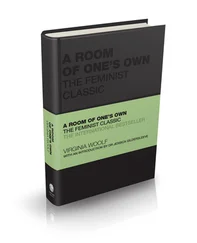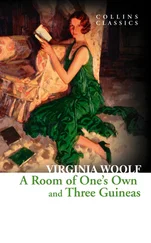‘When thus alone I not unfrequently heard Grace Poole’s laugh… ‘
That is an awkward break, I thought. It is upsetting to come upon Grace Poole all of a sudden. The continuity is disturbed. One might say, I continued, laying the book down beside PRIDE AND PREJUDICE, that the woman who wrote those pages had more genius in her than Jane Austen; but if one reads them over and marks that jerk in them, that indignation, one sees that she will never get her genius expressed whole and entire. Her books will be deformed and twisted. She will write in a rage where she should write calmly. She will write foolishly where she should write wisely. She will write of herself where she should write of her characters. She is at war with her lot. How could she help but die young, cramped and thwarted?
One could not but play for a moment with the thought of what might have happened if Charlotte Brontë had possessed say three hundred a year—but the foolish woman sold the copyright of her novels outright for fifteen hundred pounds; had somehow possessed more knowledge of the busy world, and towns and regions full of life; more practical experience, and intercourse with her kind and acquaintance with a variety of character. In those words she puts her finger exactly not only upon her own defects as a novelist but upon those of her sex at that time. She knew, no one better, how enormously her genius would have profited if it had not spent itself in solitary visions over distant fields; if experience and intercourse and travel had been granted her. But they were not granted; they were withheld; and we must accept the fact that all those good novels, VILLETTE, EMMA, WUTHERING HEIGHTS, MIDDLEMARCH, were written by women without more experience of life than could enter the house of a respectable clergyman; written too in the common sitting-room of that respectable house and by women so poor that they could not afford to buy more than a few quires of paper at a time upon which to write WUTHERING HEIGHTS or JANE EYRE. One of them, it is true, George Eliot, escaped after much tribulation, but only to a secluded villa in St John’s Wood. And there she settled down in the shadow of the world’s disapproval. ‘I wish it to be understood’, she wrote, ‘that I should never invite anyone to come and see me who did not ask for the invitation’; for was she not living in sin with a married man and might not the sight of her damage the chastity of Mrs Smith or whoever it might be that chanced to call? One must submit to the social convention, and be ‘cut off from what is called the world’. At the same time, on the other side of Europe, there was a young man living freely with this gypsy or with that great lady; going to the wars; picking up unhindered and uncensored all that varied experience of human life which served him so splendidly later when he came to write his books. Had Tolstoi lived at the Priory in seclusion with a married lady ‘cut off from what is called the world’, however edifying the moral lesson, he could scarcely, I thought, have written WAR AND PEACE.
But one could perhaps go a little deeper into the question of novel-writing and the effect of sex upon the novelist. If one shuts one’s eyes and thinks of the novel as a whole, it would seem to be a creation owning a certain looking-glass likeness to life, though of course with simplifications and distortions innumerable. At any rate, it is a structure leaving a shape on the mind’s eye, built now in squares, now pagoda shaped, now throwing out wings and arcades, now solidly compact and domed like the Cathedral of Saint Sofia at Constantinople. This shape, I thought, thinking back over certain famous novels, starts in one the kind of emotion that is appropriate to it. But that emotion at once blends itself with others, for the ‘shape’ is not made by the relation of stone to stone, but by the relation of human being to human being. Thus a novel starts in us all sorts of antagonistic and opposed emotions. Life conflicts with something that is not life. Hence the difficulty of coming to any agreement about novels, and the immense sway that our private prejudices have upon us. On the one hand we feel You—John the hero—must live, or I shall be in the depths of despair. On the other, we feel, Alas, John, you must die, because the shape of the book requires it. Life conflicts with something that is not life. Then since life it is in part, we judge it as life. James is the sort of man I most detest, one says. Or, This is a farrago of absurdity. I could never feel anything of the sort myself. The whole structure, it is obvious, thinking back on any famous novel, is one of infinite complexity, because it is thus made up of so many different judgements, of so many different kinds of emotion. The wonder is that any book so composed holds together for more than a year or two, or can possibly mean to the English reader what it means for the Russian or the Chinese. But they do hold together occasionally very remarkably. And what holds them together in these rare instances of survival (I was thinking of WAR AND PEACE) is something that one calls integrity, though it has nothing to do with paying one’s bills or behaving honourably in an emergency. What one means by integrity, in the case of the novelist, is the conviction that he gives one that this is the truth. Yes, one feels, I should never have thought that this could be so; I have never known people behaving like that. But you have convinced me that so it is, so it happens. One holds every phrase, every scene to the light as one reads—for Nature seems, very oddly, to have provided us with an inner light by which to judge of the novelist’s integrity or disintegrity. Or perhaps it is rather that Nature, in her most irrational mood, has traced in invisible ink on the walls of the mind a premonition which these great artists confirm; a sketch which only needs to be held to the fire of genius to become visible. When one so exposes it and sees it come to life one exclaims in rapture, But this is what I have always felt and known and desired! And one boils over with excitement, and, shutting the book even with a kind of reverence as if it were something very precious, a stand-by to return to as long as one lives, one puts it back on the shelf, I said, taking WAR AND PEACE and putting it back in its place. If, on the other hand, these poor sentences that one takes and tests rouse first a quick and eager response with their bright colouring and their dashing gestures but there they stop: something seems to check them in their development: or if they bring to light only a faint scribble in that corner and a blot over there, and nothing appears whole and entire, then one heaves a sigh of disappointment and says. Another failure. This novel has come to grief somewhere.
And for the most part, of course, novels do come to grief somewhere. The imagination falters under the enormous strain. The insight is confused; it can no longer distinguish between the true and the false, it has no longer the strength to go on with the vast labour that calls at every moment for the use of so many different faculties. But how would all this be affected by the sex of the novelist, I wondered, looking at JANE EYRE and the others. Would the fact of her sex in any way interfere with the integrity of a woman novelist—that integrity which I take to be the backbone of the writer? Now, in the passages I have quoted from JANE EYRE, it is clear that anger was tampering with the integrity of Charlotte Brontë the novelist. She left her story, to which her entire devotion was due, to attend to some personal grievance. She remembered that she had been starved of her proper due of experience—she had been made to stagnate in a parsonage mending stockings when she wanted to wander free over the world. Her imagination swerved from indignation and we feel it swerve. But there were many more influences than anger tugging at her imagination and deflecting it from its path. Ignorance, for instance. The portrait of Rochester is drawn in the dark. We feel the influence of fear in it; just as we constantly feel an acidity which is the result of oppression, a buried suffering smouldering beneath her passion, a rancour which contracts those books, splendid as they are, with a spasm of pain.
Читать дальше











